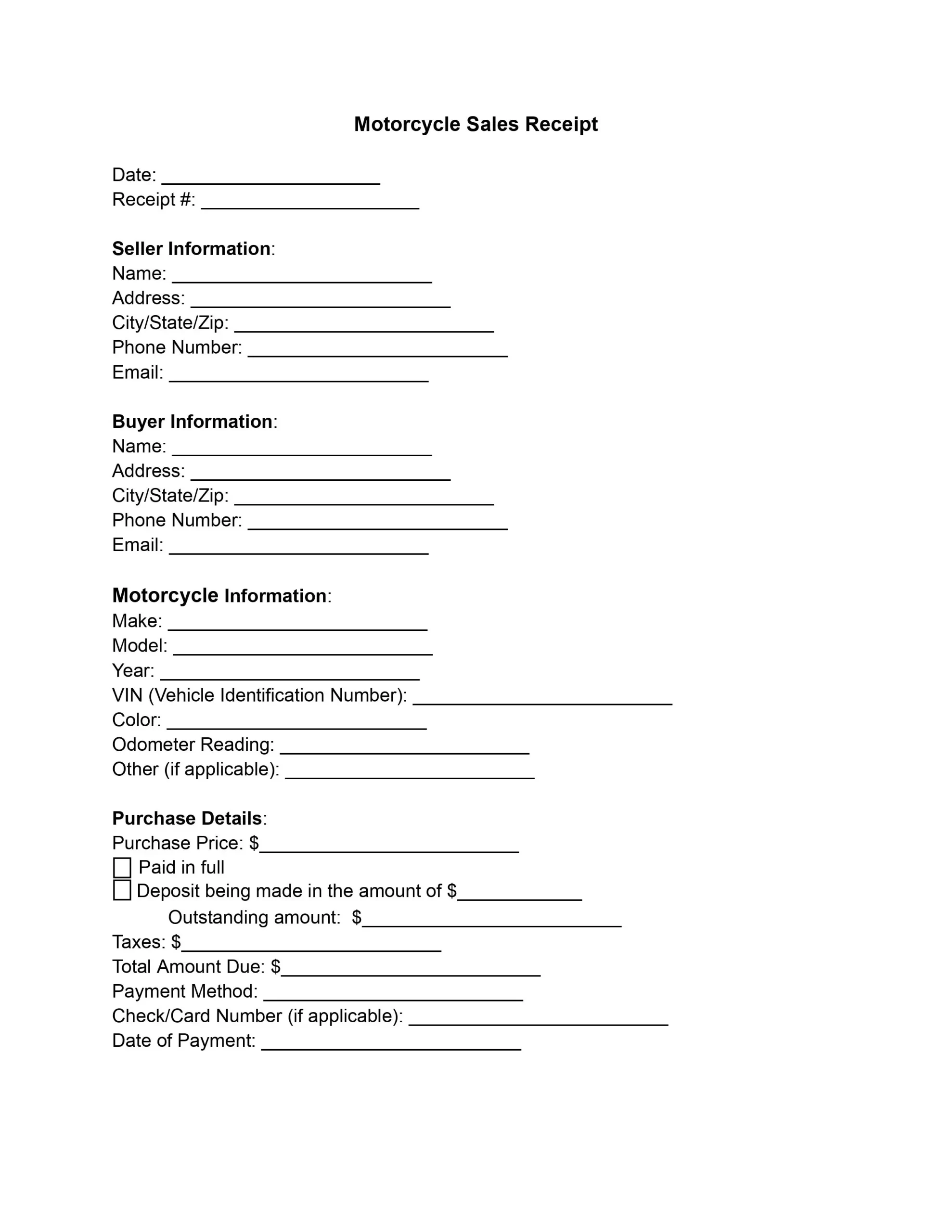When buying or selling a motorcycle, excitement and anticipation can sometimes overshadow the essential steps to ensure the transaction’s integrity. One such critical step is exchanging a motorcycle sale receipt. This simple document might seem formal. Still, it holds significant value in the transaction process.
A motorcycle sale receipt is a written acknowledgment that a motorcycle transaction has taken place. It details the sale, including information about the buyer, the seller, the motorcycle, and the terms of sale. This document serves as a concrete transaction record, providing proof of purchase and transfer of ownership from the seller to the buyer.
Why Do You Need a Motorcycle Sales Receipt?
A motorcycle sale receipt is a binding legal document that memorializes the transaction between the buyer and seller. It acts as incontrovertible documentation of the agreement, outlining the conditions of sale and both parties’ approval of such terms. For the seller, it represents the transfer of ownership and frees them from all future responsibilities relating to the motorcycle. For the buyer, it guarantees their claim to the property, making them the lawful owner. Here are all the key reasons why a motorcycle sale receipt is indispensable:
- Legal Protection. Documents the transfer of ownership, protecting both buyer and seller from future liabilities.
- Ownership Proof. Acts as undeniable proof of the sale and transfer of ownership.
- Registration and Insurance. It is required for registering the motorcycle and obtaining insurance, verifying the legality of the transaction and ownership.
Instead of starting from scratch, a motorcycle sale receipt template provides a structured format you can easily fill out. It significantly reduces the time spent on drafting, allowing both parties to focus on other aspects of the sale and transfer process.
Our motorcycle sale receipt form is designed based on best practices and legal requirements. Following a well-structured template minimizes the likelihood of making mistakes or omitting important information.
How to Edit Motorcycle Sale Receipt Template
By carefully following these steps, you can accurately complete a motorcycle sale receipt form, resulting in a clear transaction record that protects both the buyer’s and seller’s rights.
1. Fill in the Date of Sale
Enter the date when the sale is finalized at the top of the receipt. It establishes the official timeline of the transaction, which is crucial for any future reference or legal purposes.
2. Add Buyer and Seller Information
Complete the sections designated for the buyer and seller details. Include full names, addresses, and contact information. This clarity is essential for identifying both parties involved in the transaction.
4. Describe the Motorcycle
The section allocated for the motorcycle description lists all pertinent details, such as the make, model, year, color, VIN (Vehicle Identification Number), and current mileage. This information is crucial for identifying the specific motorcycle being sold.
5. Specify the Sale Price and Payment Method
Clearly state the total sale price of the motorcycle and how the payment was made (e.g., cash, check, electronic transfer). If there were any specific payment arrangements (like installments), also detail those terms here.
6. Outline the Condition of Sale
Specify the condition where the motorcycle is sold, such as “as is.” This indicates that the buyer accepts the motorcycle’s condition at the time of sale and that the seller isn’t liable for future issues.
7. Signatures
Both the buyer and the seller must sign the receipt. These signatures are crucial as they indicate that both parties agree to the terms of the sale as described in the receipt. Include a line for each party to print their name as well.
